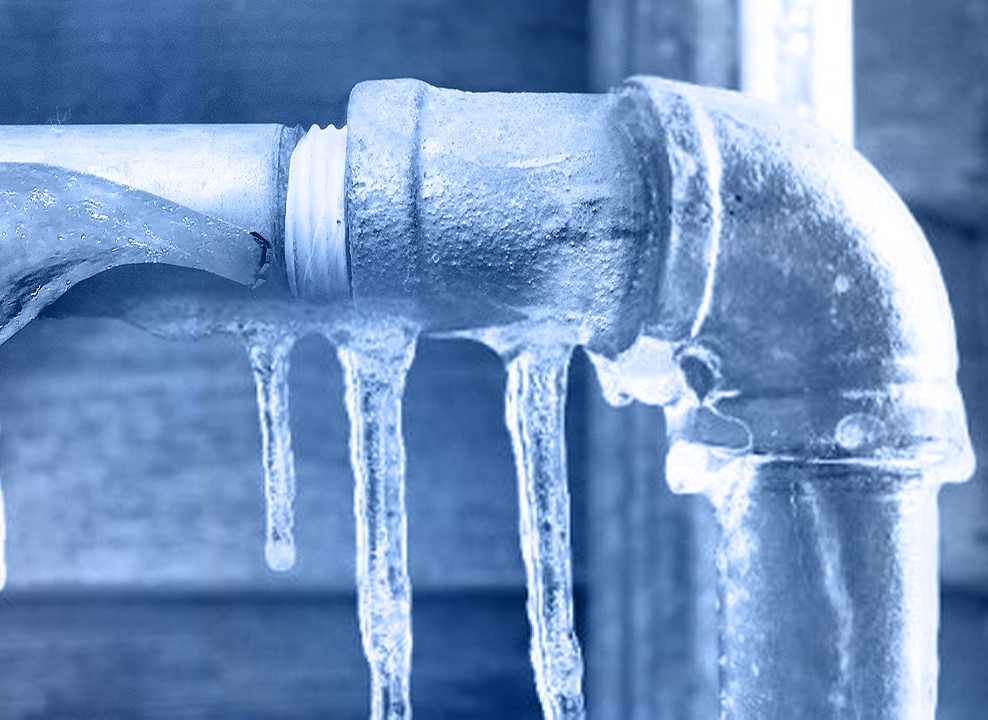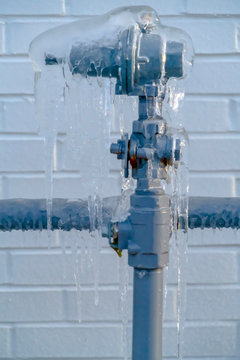How to Keep Your Pipes from Freezing Damage: Important Tips
How to Keep Your Pipes from Freezing Damage: Important Tips
Blog Article
Presented here in the next paragraphs yow will discover some excellent material in regards to Prevent Frozen Pipes .

Winter can wreak havoc on your plumbing, especially by freezing pipelines. Below's how to prevent it from happening and what to do if it does.
Intro
As temperatures decrease, the threat of frozen pipelines rises, potentially causing costly repair work and water damages. Recognizing how to avoid icy pipelines is crucial for property owners in chilly environments.
Avoidance Tips
Insulating vulnerable pipes
Cover pipes in insulation sleeves or utilize warmth tape to secure them from freezing temperature levels. Concentrate on pipes in unheated or external areas of the home.
Heating strategies
Maintain interior areas sufficiently heated up, especially areas with pipes. Open up cupboard doors to permit cozy air to distribute around pipes under sinks.
How to recognize frozen pipes
Seek reduced water circulation from taps, unusual odors or noises from pipelines, and noticeable frost on revealed pipes.
Long-Term Solutions
Structural modifications
Take into consideration rerouting pipelines far from exterior walls or unheated areas. Add extra insulation to attics, basements, and crawl spaces.
Upgrading insulation
Invest in premium insulation for pipes, attics, and walls. Proper insulation aids keep regular temperature levels and minimizes the danger of frozen pipelines.
Shielding Outside Plumbing
Garden tubes and outside faucets
Separate and drain pipes garden hoses prior to winter season. Install frost-proof faucets or cover outdoor taps with protected caps.
Recognizing Icy Pipelines
What causes pipes to freeze?
Pipes freeze when exposed to temperatures listed below 32 ° F (0 ° C) for prolonged durations. As water inside the pipelines ices up, it broadens, taxing the pipeline walls and potentially triggering them to rupture.
Dangers and problems
Icy pipelines can bring about supply of water disruptions, residential or commercial property damages, and costly repairs. Burst pipelines can flooding homes and cause comprehensive structural damage.
Indications of Frozen Water Lines
Determining icy pipes early can avoid them from rupturing.
What to Do If Your Pipes Freeze
Immediate actions to take
If you suspect icy pipelines, keep faucets open to alleviate stress as the ice thaws. Utilize a hairdryer or towels soaked in hot water to thaw pipelines slowly.
Conclusion
Preventing icy pipes calls for positive steps and fast reactions. By understanding the reasons, signs, and safety nets, property owners can shield their plumbing during winter.
6 Proven Ways to Prevent Frozen Pipes and Protect Your Home
Disconnect and Drain Garden Hoses
Before winter arrives, start by disconnecting your garden hoses and draining any remaining water. Close the shut-off valves that supply outdoor hose bibs and leave the outdoor faucet open to allow any residual water to drain. For extra protection, consider using faucet covers throughout the colder months. It’s also important to drain water from any sprinkler supply lines following the manufacturer’s directions.
Insulate Exposed Pipes
Insulating your pipes is an effective way to prevent freezing. Pipe insulation is readily available at home improvement stores and is relatively inexpensive. Pay close attention to pipes in unheated areas such as the attic, basement, crawl spaces, or garage. Apply foam insulation generously to create a buffer against the cold. You can also wrap your pipes in heat tape or thermostat-controlled heat cables for added warmth.
Seal Air Leaks
Inspect your home for any cracks or openings that could let in cold air. Seal any holes around the piping in interior or exterior walls, as well as the sill plates where your home rests on its foundation. Additionally, make sure to keep your garage door closed unless you’re entering or exiting. Leaving it open creates a significant air leak that can lead to frozen pipes.
Allow Warm Air Circulation
During cold snaps, it’s essential to allow warm air to circulate evenly throughout your home. Leave interior doors ajar to promote better airflow. Open kitchen and bathroom cabinets to help distribute heat consistently around the rooms. If you have small children or pets, be sure to remove any household chemicals or potentially harmful cleaners from open cabinets for safety.
Let Faucets Drip
A small trickle of water can make a big difference in preventing ice formation inside your pipes. When temperatures drop significantly, start a drip of water from all faucets served by exposed pipes. This continuous flow helps prevent the water from freezing. Additionally, running a few faucets slightly can relieve pressure inside the pipes, reducing the chances of a rupture if the water inside does freeze.
https://choateshvac.com/6-proven-ways-to-prevent-frozen-pipes-and-protect-your-home/

Do you like reading about Preventing and dealing with frozen pipes? Write a remark down below. We would be happy to listen to your feelings about this blog. In hopes to see you back again in the future. Are you aware of somebody else who is in the market for the topic? Take a moment to promote it. We cherish reading our article about How to prepare your home plumbing for winter weather.
Call Us Now Report this page